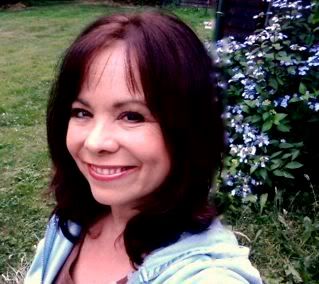a writer's entitlement
 Just above my desk, stuck through to a corkboard with a red, square-headed tack, is this quote by Amy Hempel:
Just above my desk, stuck through to a corkboard with a red, square-headed tack, is this quote by Amy Hempel:"I am entitled to tell this particular story in a way no one else can."
I drew strength from that quote many times while working on my first book; it served to chase away the always-hovering fear that perhaps I was missing it, perhaps I had failed to find the one right-and-true, acceptable version of whatever I was working on at the moment.
I don't know if any of you ever crumbled beneath the weight of that lie, but that was my big writing foe. Just settled in my chair, with my fingers barely touching the keyboard, the lie would rise up, enfold its massive self around me, and start squeezing the creativity right out of me. If it could speak out loud, it would have said, "You're going to blow it. Any second now, when you write the first word of the first sentence of the first page of this chapter, you're going to blow it. You'll choose the wrong word--right from the get-go--and you'll take this story in an entirely wrong direction."
I heard the message. Not verbally, of course. Perhaps it was through osmosis. With a weight that big resting on you, something's bound to seep between its pores and yours. The unspoken message froze my fingers--sometimes for long stretches at a time. When I could finally put a word to the screen, my heart would sink. Of the thousands and thousands of words I could have chosen, what chance, really, did I have of picking the one correct word? I lived for a long time believing that my job as a writer was to somehow stumble across the one true version of my story.
Over time, a handful of little truths joined forces and agreed to stand guard over me while I wrote. One of these little truths was the realization that all writing--with one exception--is flawed. The only perfect piece of literature ever put to paper was Scripture. By default, therefore, all the rest of us are just trying our best. When I'd feel a finger of the lie wrap itself around my wrist and try to pull itself to its feet with that death-grip, I'd chop it down by repeating to myself, over and over, I'm not writing Scripture ... I'm not writing Scripture ... . Somehow, just knowing that perfection wasn't expected of me made me loosen up.
It helped, too, to realize that other writers felt the same way. In Ralph Keyes' book, The Courage to Write, he makes this statement:
"The writing that shows up on paper is rarely as good as the writing in one's head. Anthony Burgess thought every book was a failure from the moment its first sentence was written, because this sentence destroyed forever the dream of what that book might be. 'The awful thing about the first sentence of any book, agreed Tom Wolfe, 'is that as soon as you've written it you realize this piece of work is not going to be the great thing that you envision. It can't be.' The page has a mind of its own."
Some may read those observations and think How fatalistic. How defeating. But for me, those words refilled my lungs. I'd been deflated by my fear of failing; discovering that others shared my fear made me feel sane. It made me look down at my feet and realize that I'm walking the right path.
Need a few more?
"All my life, I've been frightened at the moment I sit down to write." Gabriel Garcia Marquez
"I suffer as always from the fear of putting down the first line. It is amazing the terrors, the magics, the prayers, the straightening shyness that assails one." John Steinbeck
I like lumping myself with Marquez and Steinbeck.
Yesterday I worked on a difficult chapter of my work-in-progress. I silenced the mass, ignored the Inner Eyore (my moniker for the critical, left-brain editor within), and opened a fissure. What poured out on paper was not at all what I had anticipated. It defied my tidy outline and flew in a direction quite opposite that in which I had intended it to go. But it worked. And when I reread the words, at the end of my purging, I cried.
Just as I'm entitled to tell this particular story in a way no one else can, I'm also entitled to tell it in twenty different right ways. Had I written that chapter the day before, it probably would have shot off in an entirely different direction.
We capture a sliver of time with our writing. Like dipping a cup in a fast-moving stream, the contents we pull to the surface and examine this moment will differ from the contents we might collect with the next scoop.
Enjoy the process of writing today, and dip deeply. I pray you find something new and startling and wonderful to share through your words.













3 Comment:
Thank you for the encouragement yet again , Shannon! I love to know that others have croaked at the keyboard, too. (not fatally, of course)
I know ... it's that whole "misery loves company" thing. :)
Lori, if you've never read Ralph Keyes' The Courage to Write, you should really try to do so. I read it about once a year, and I never fail to get something new out of it. Great book!
I very much understand about the same chapter turning out differently if it was written another day. I sometimes feel like I wouldn't be able to recognize entire books if I'd waited a week or so to start them. I write from a very vague outline, so that only compounds the problem - or adventure, depending on how you look at it.
Post a Comment
Thank you for your kind, loving comment. Um ... you were kind and loving, weren't you?
Back to the home page...